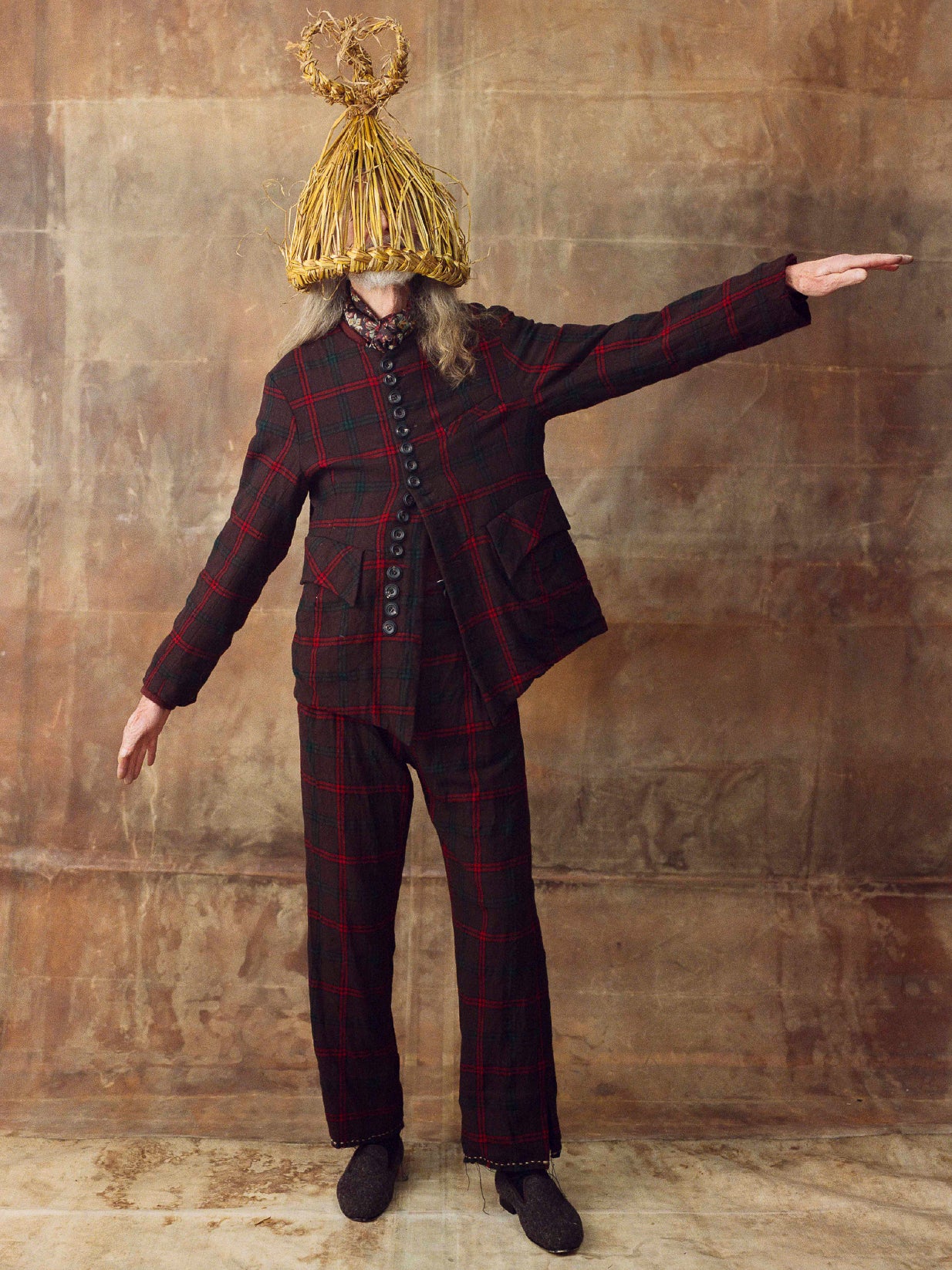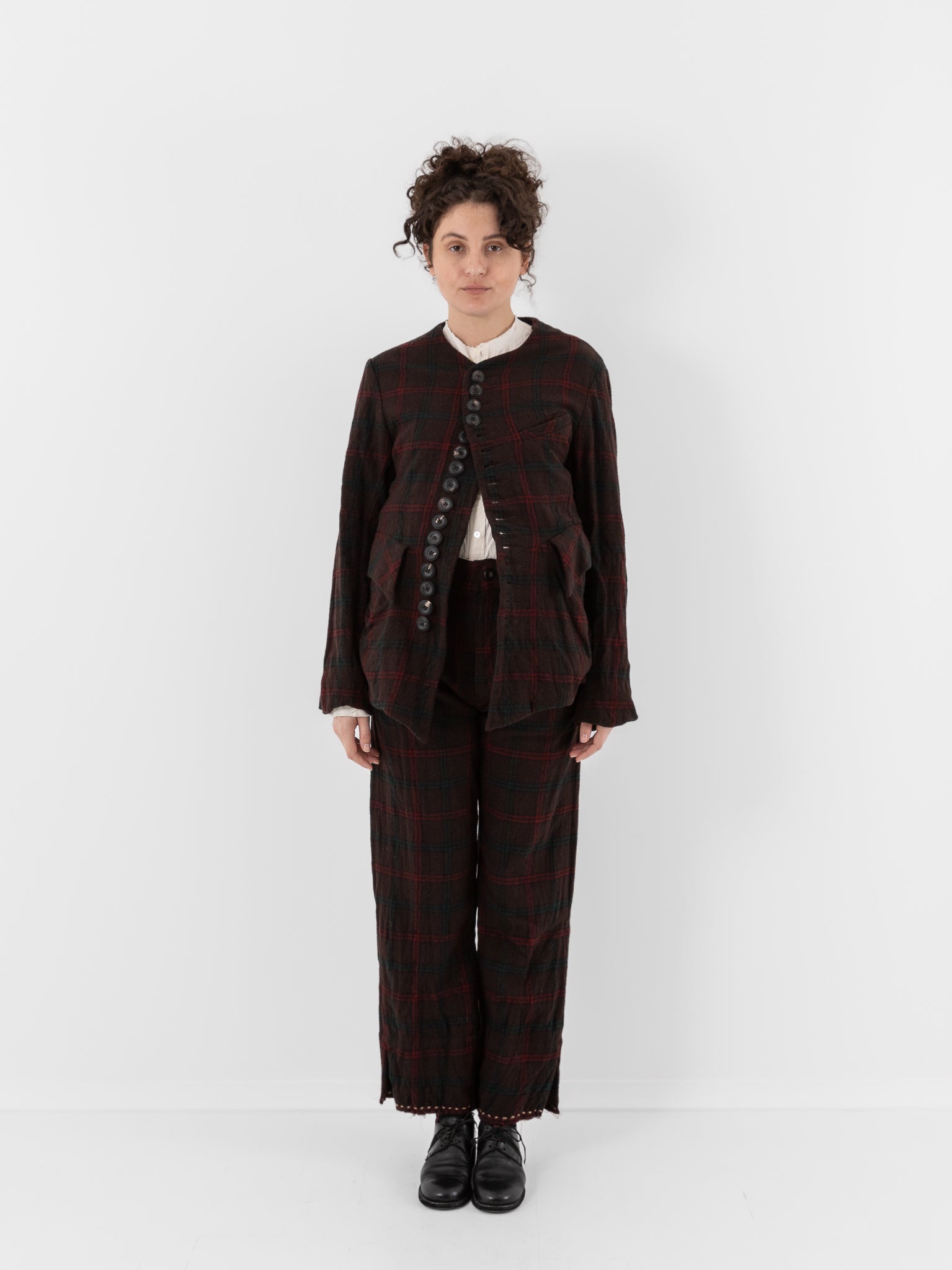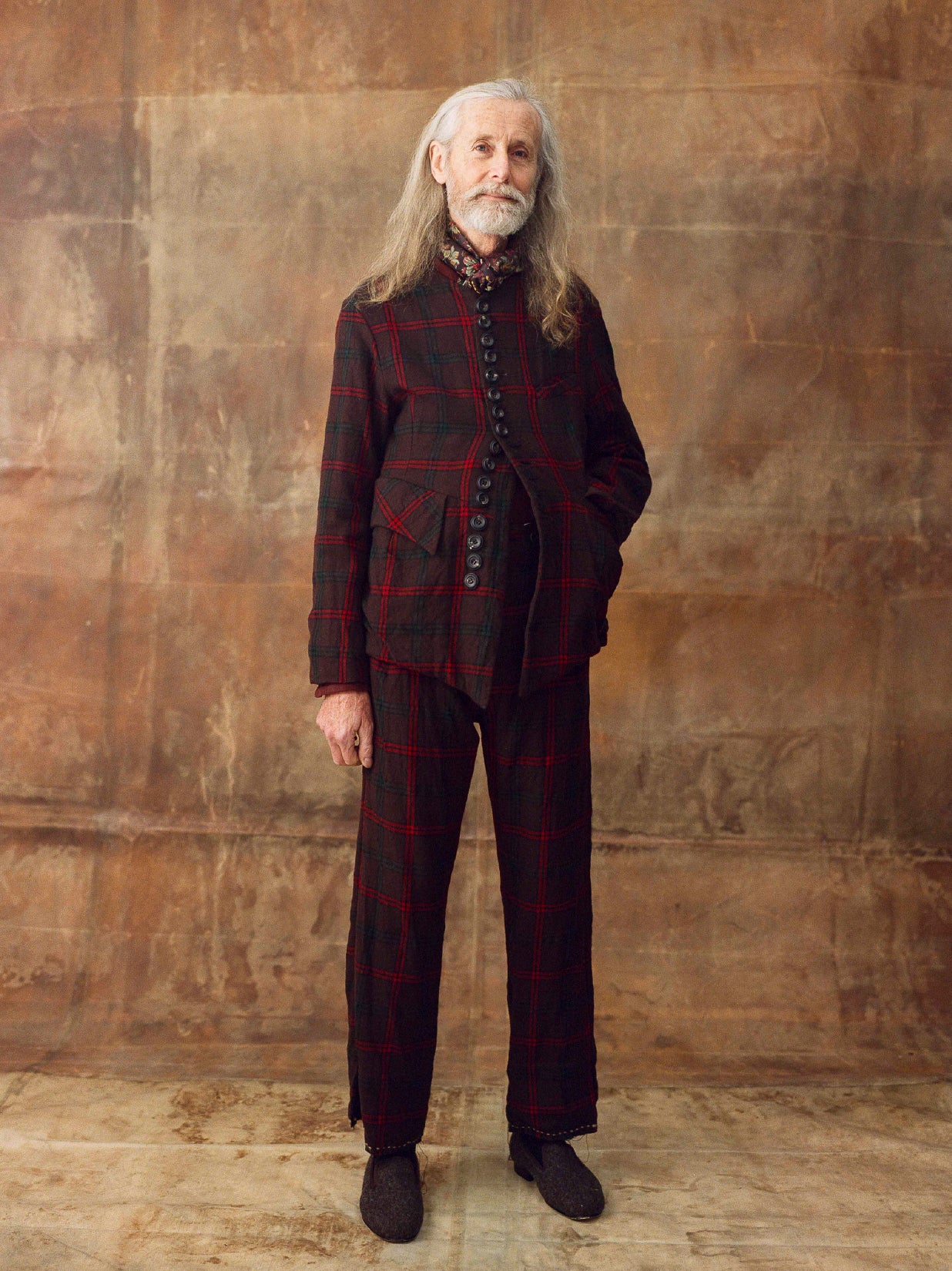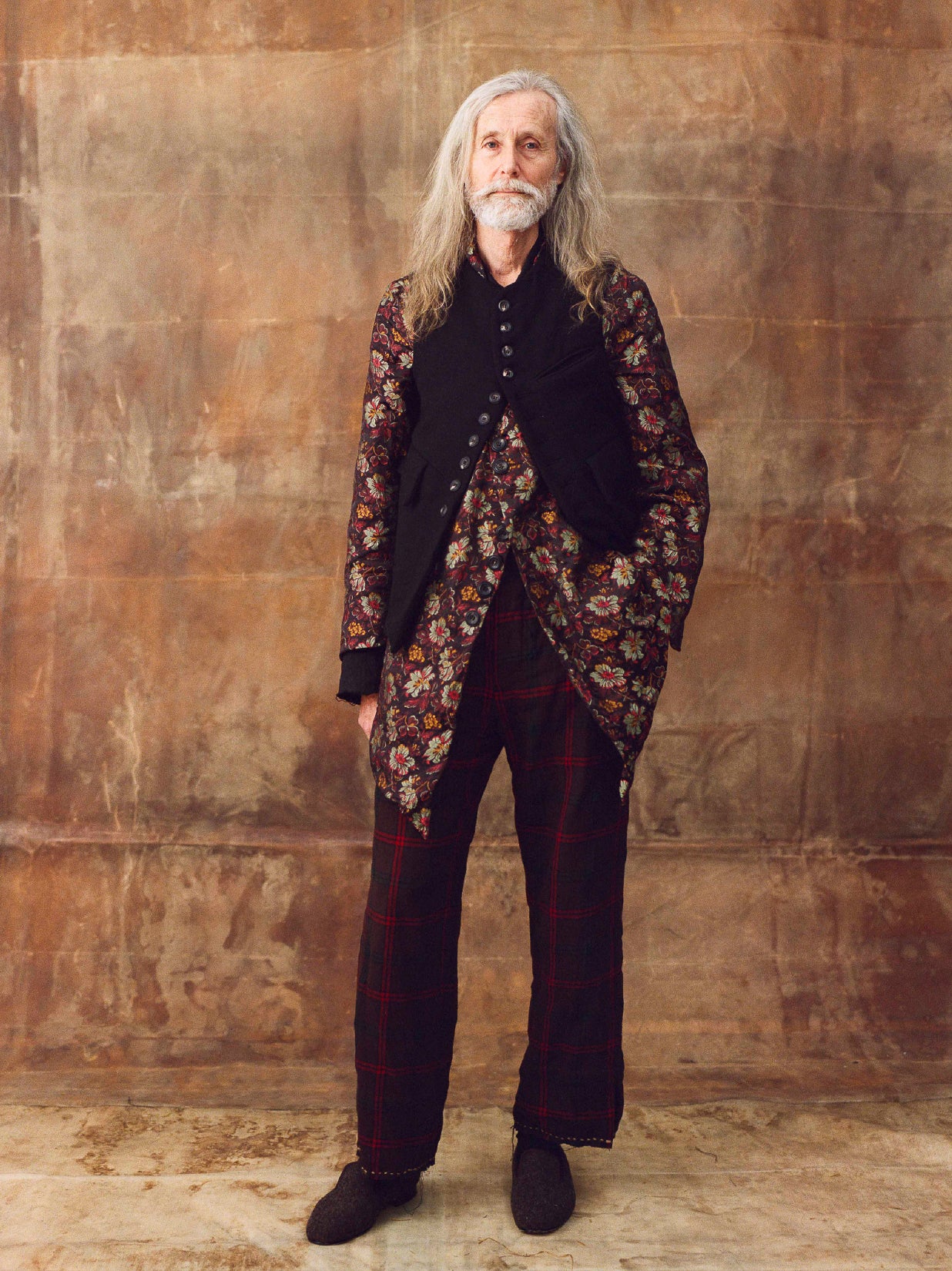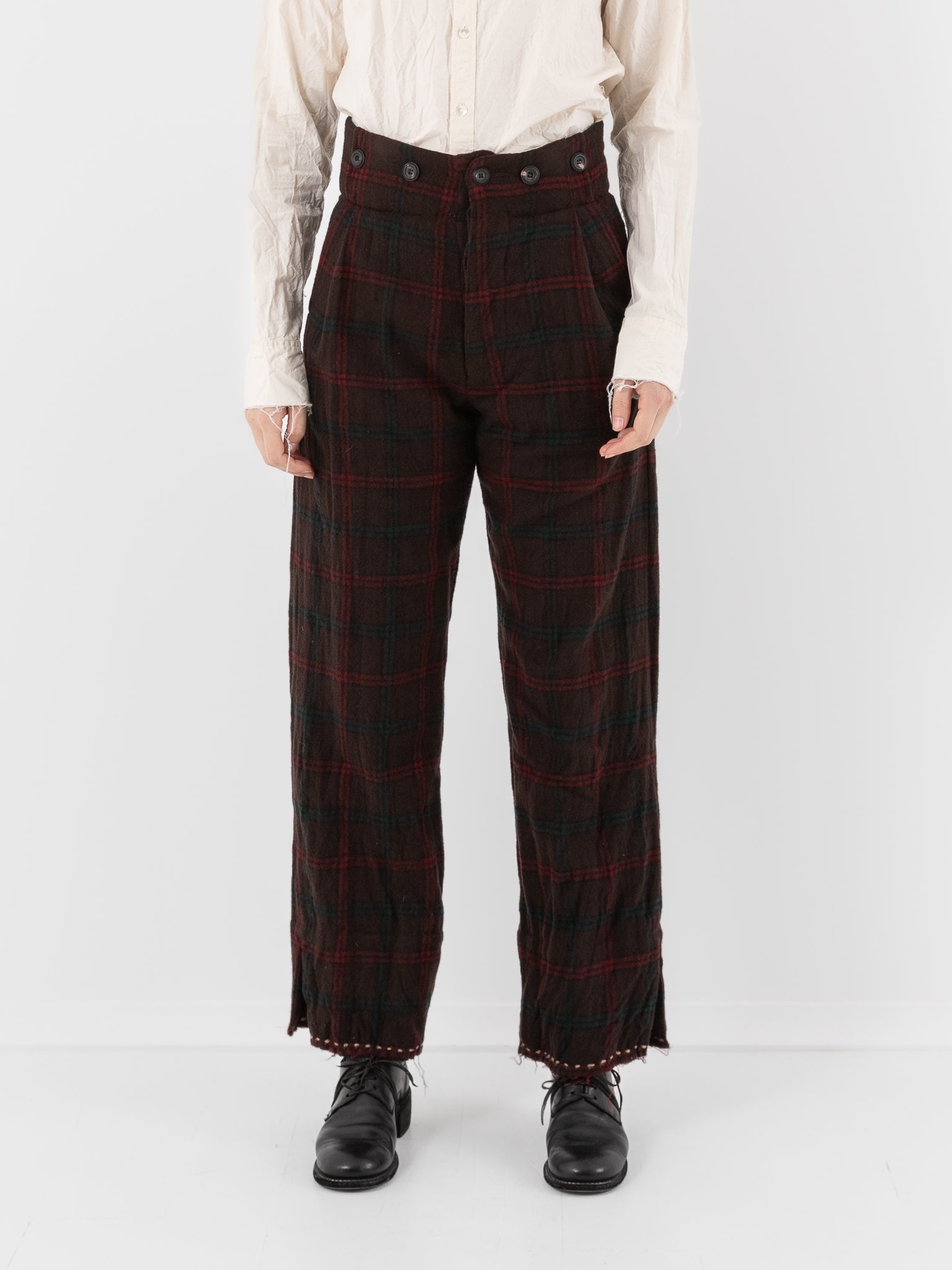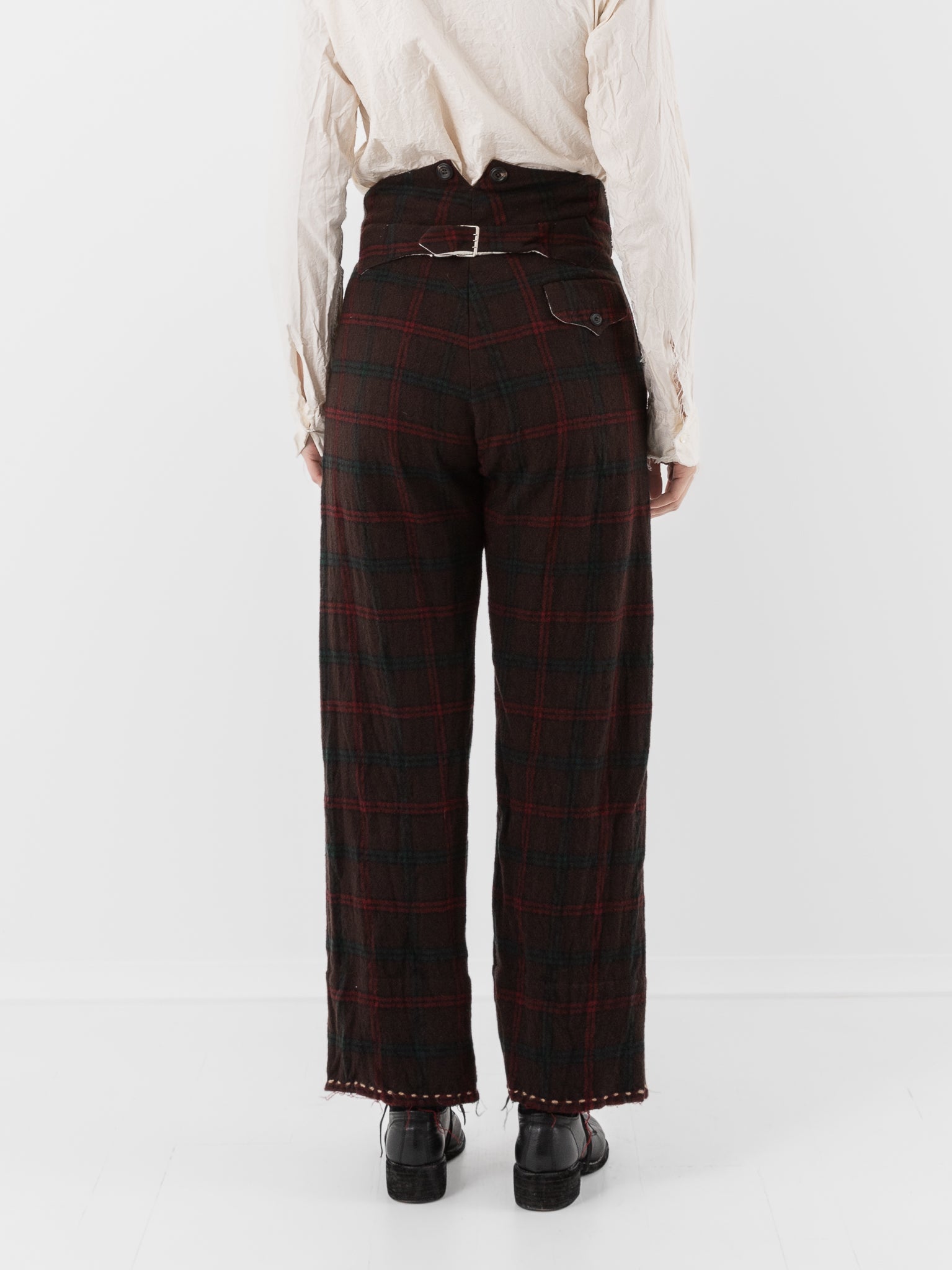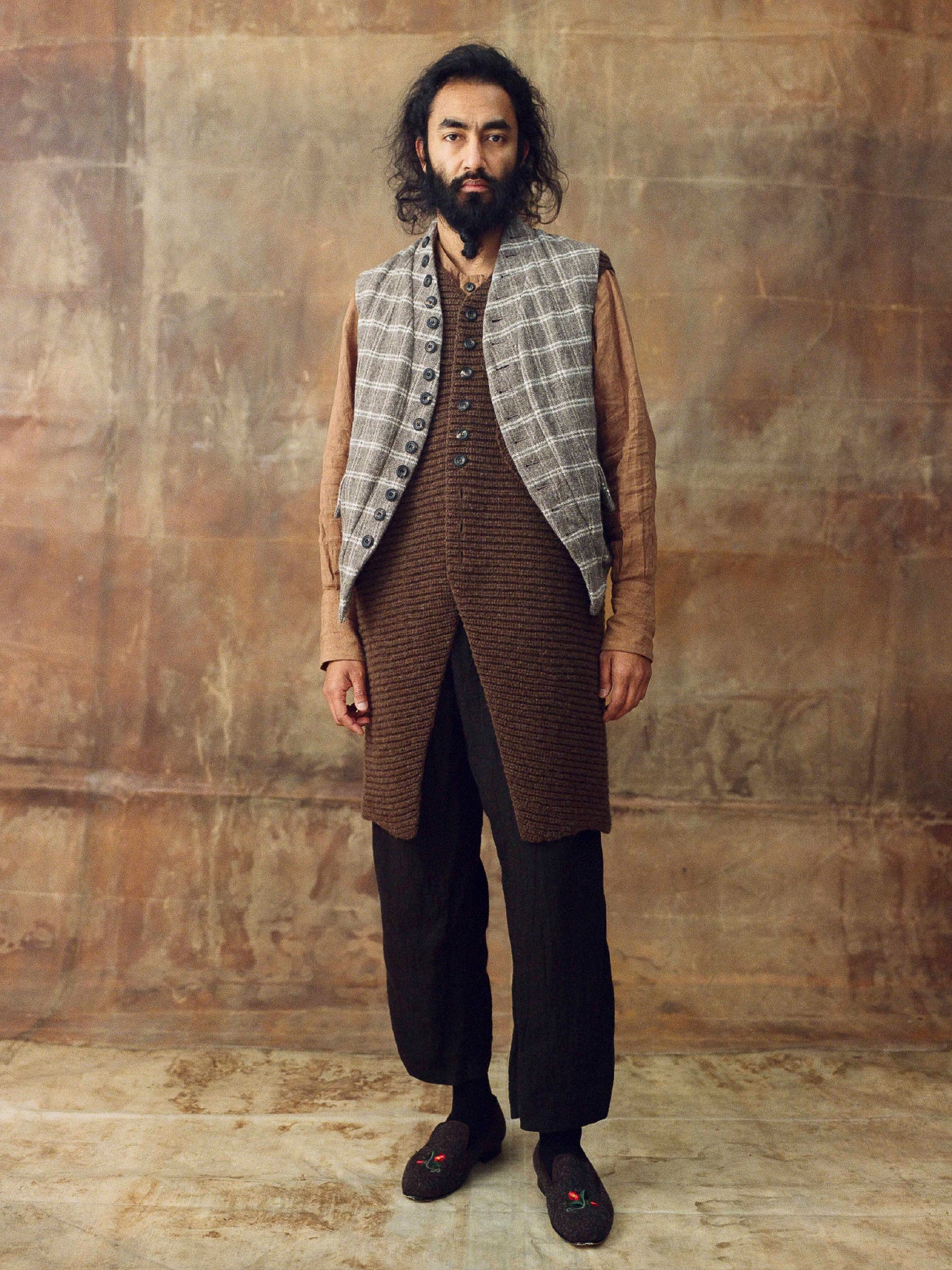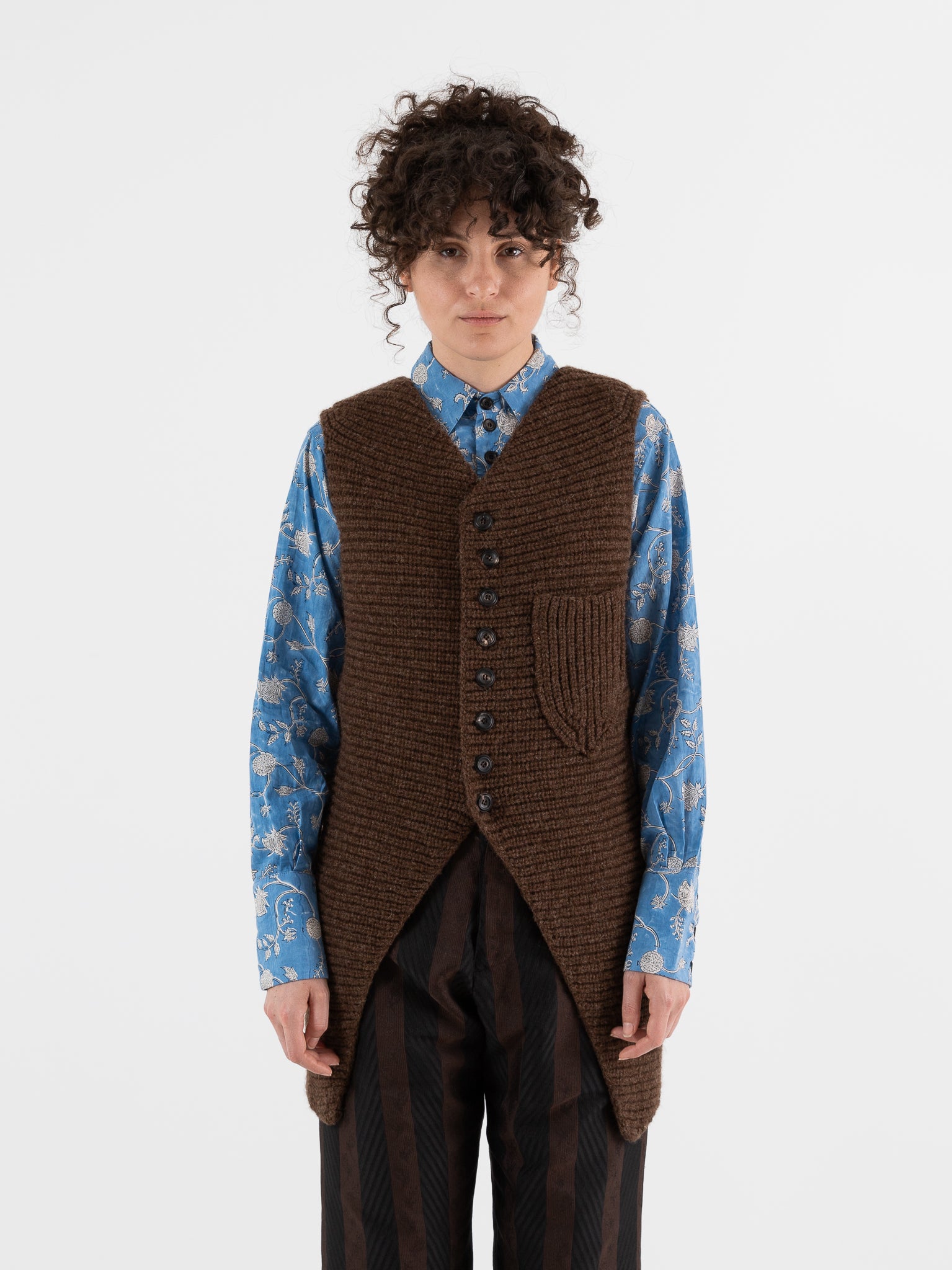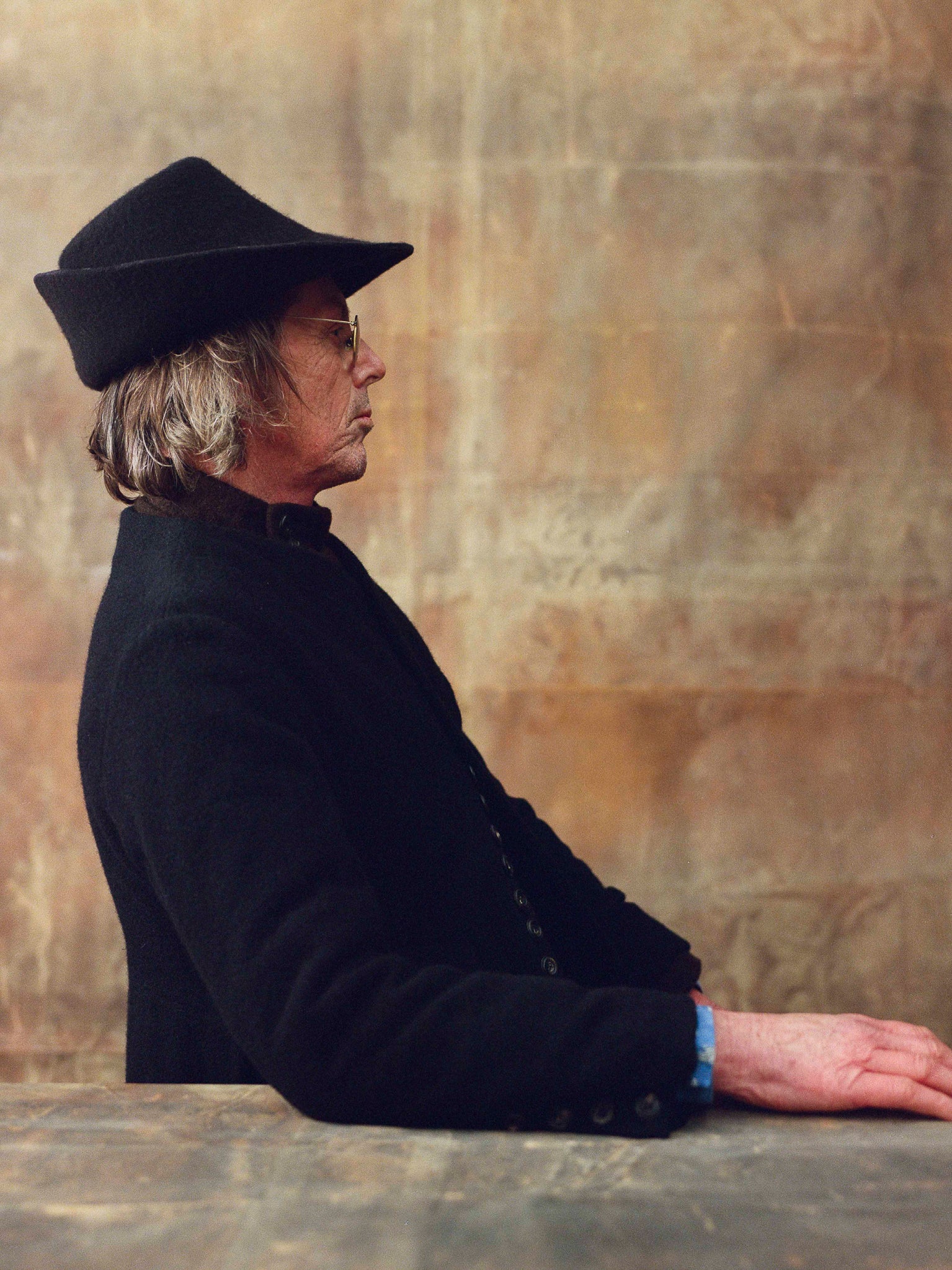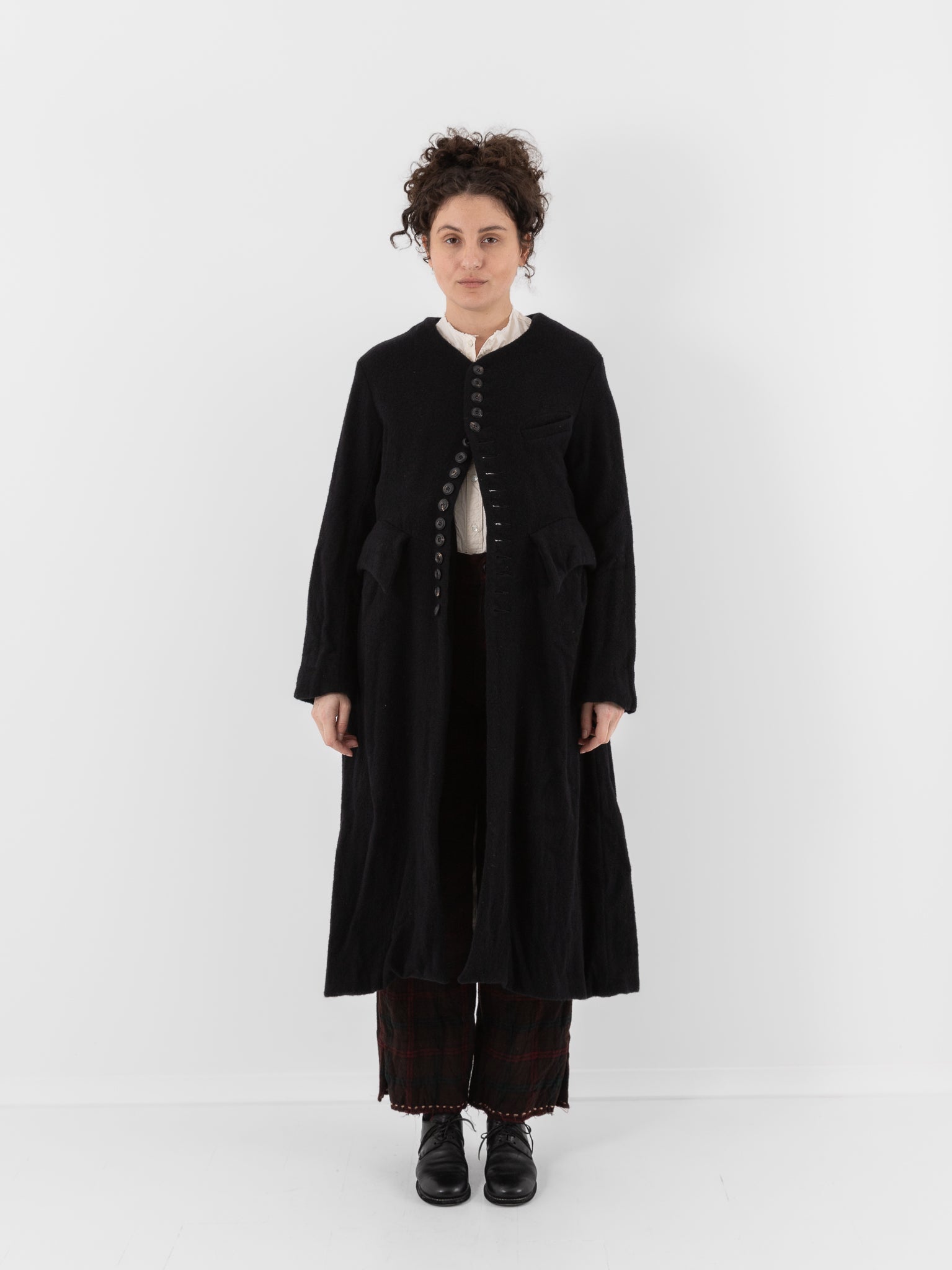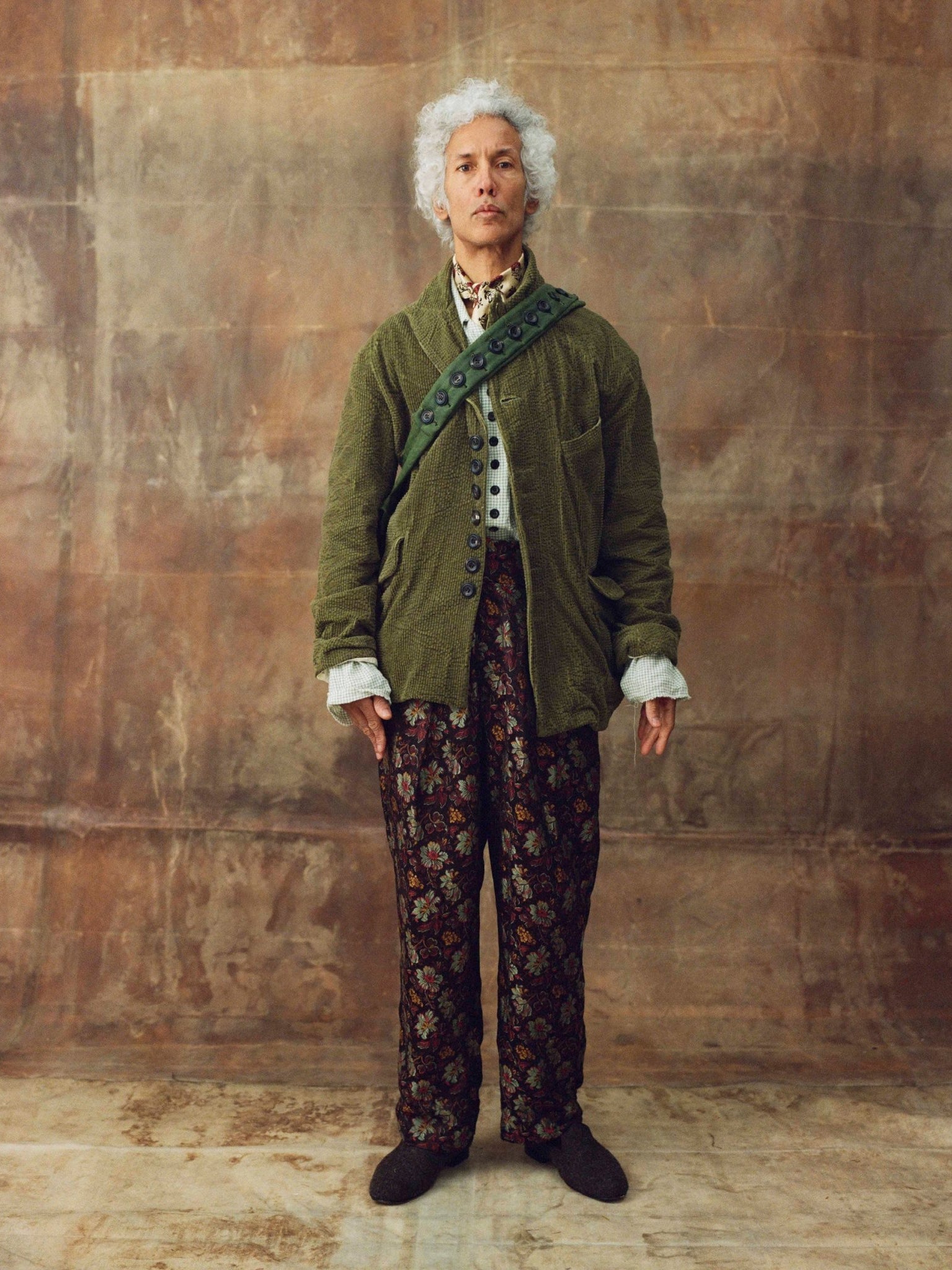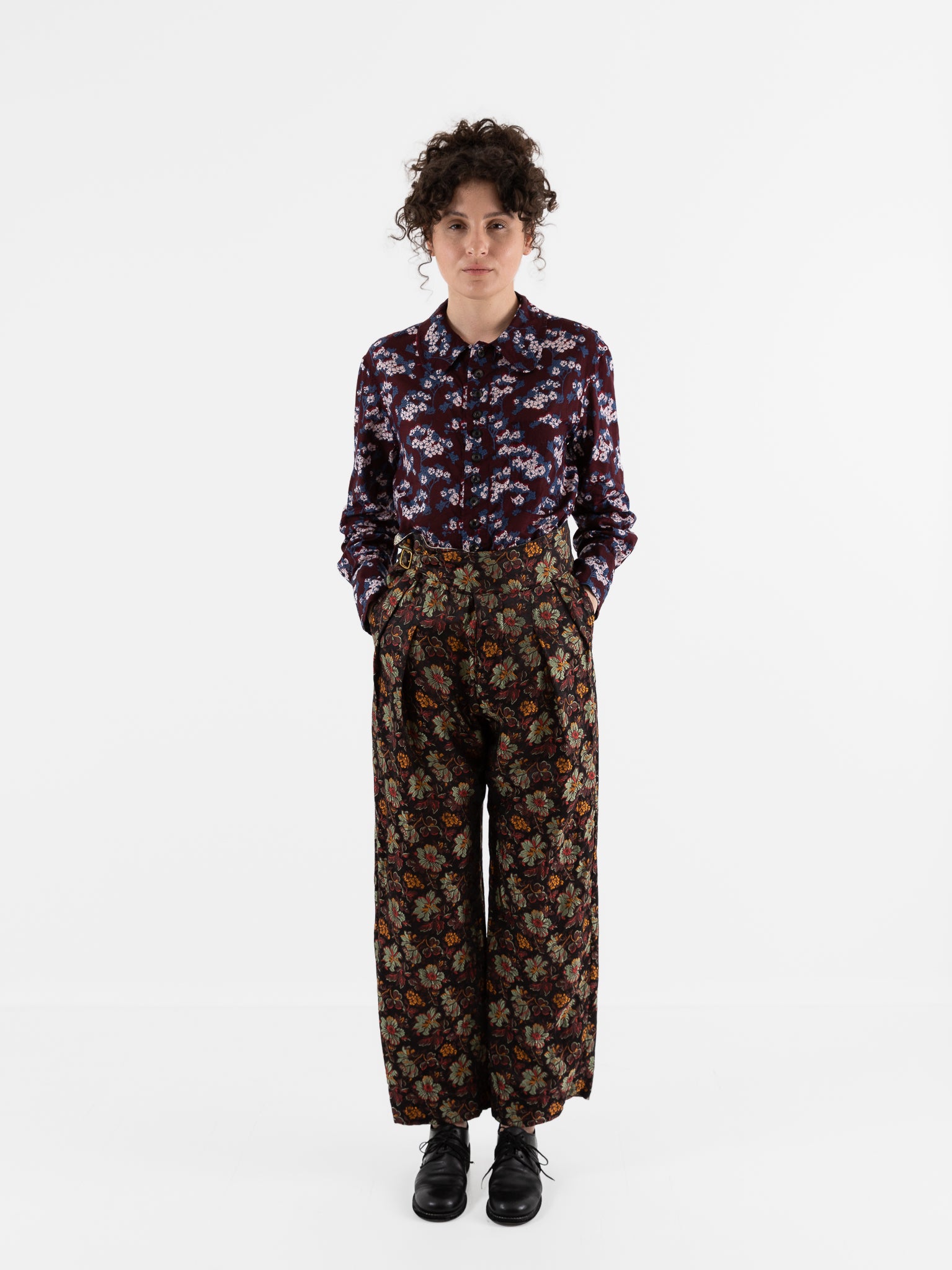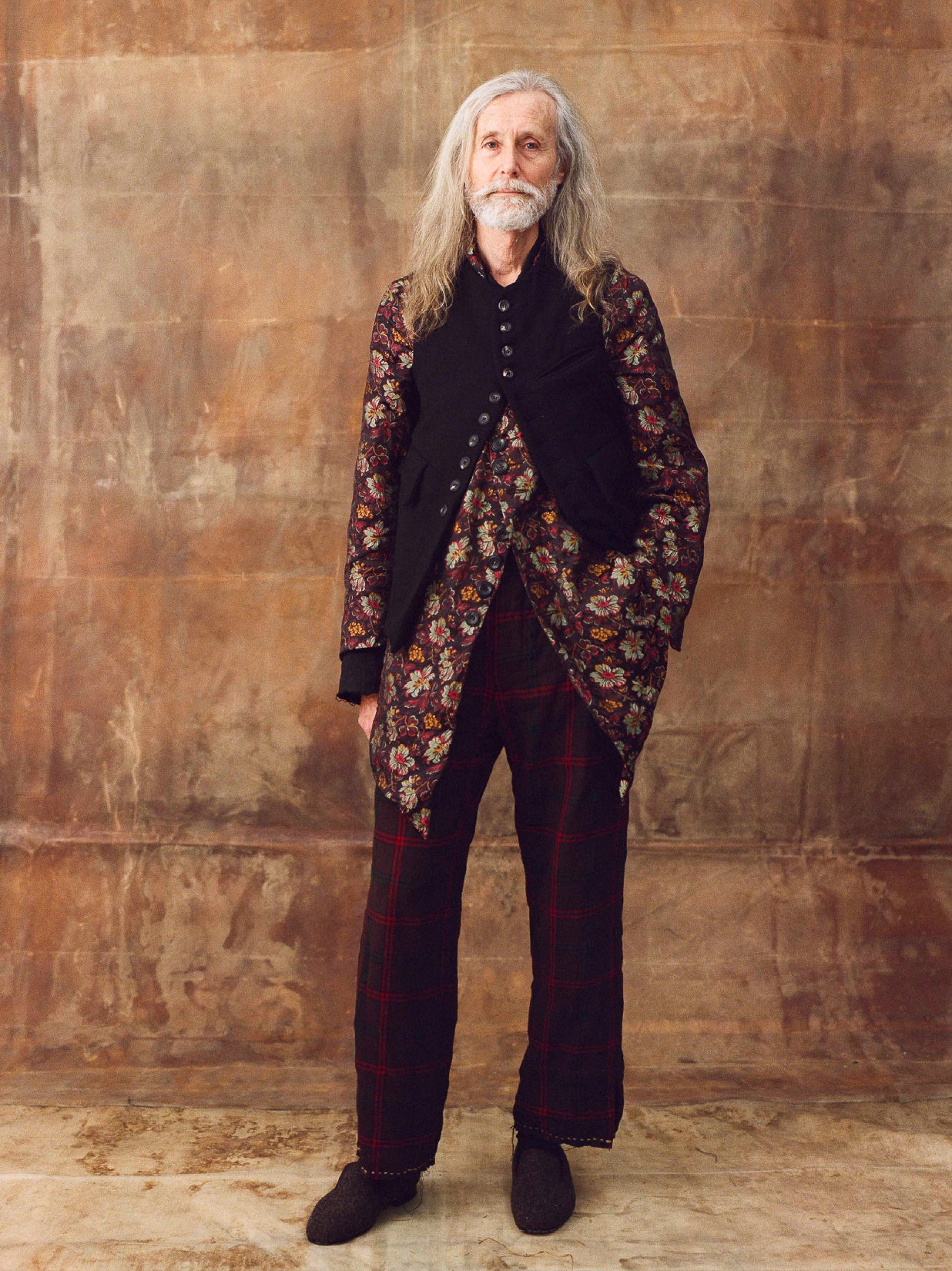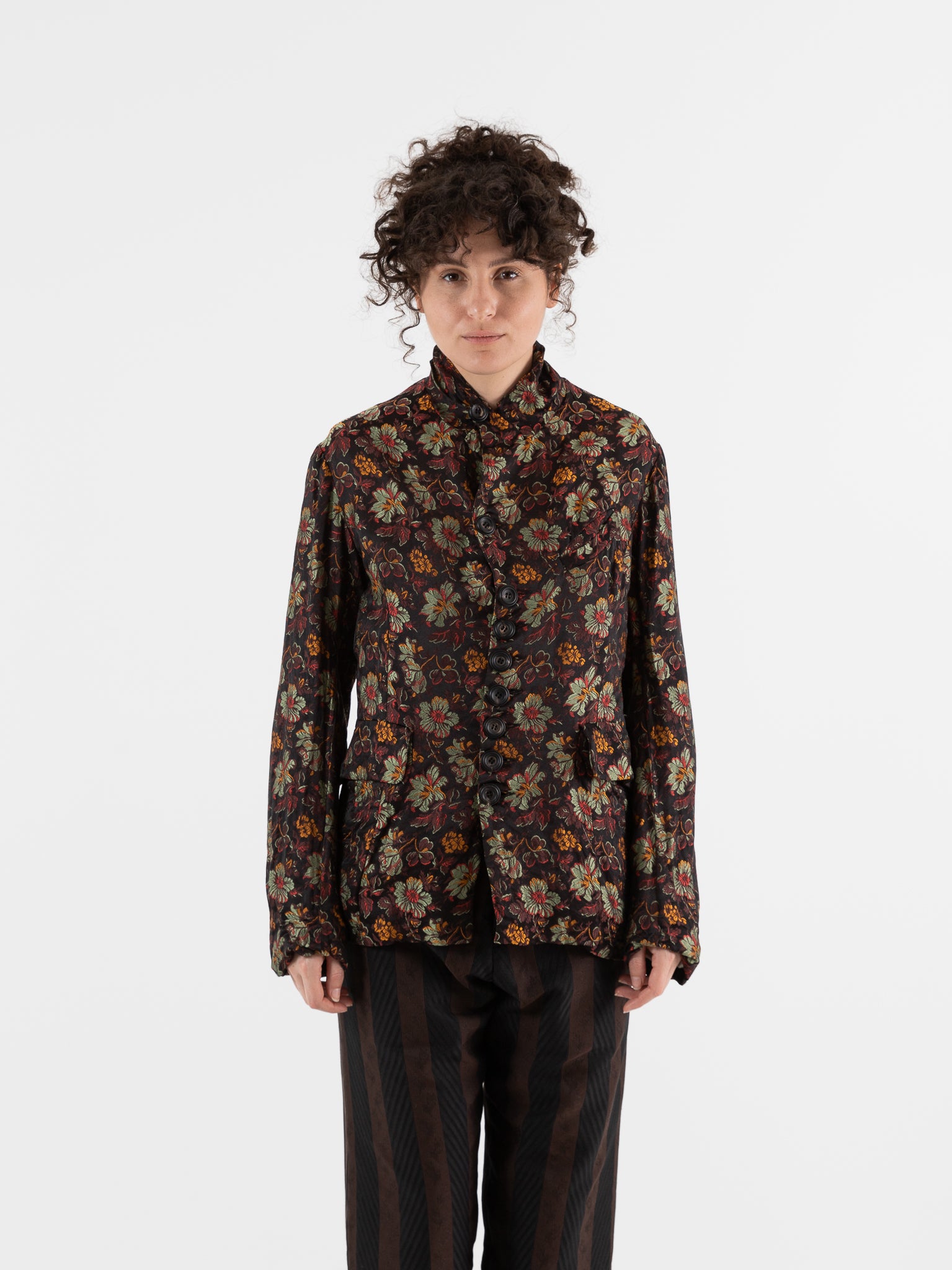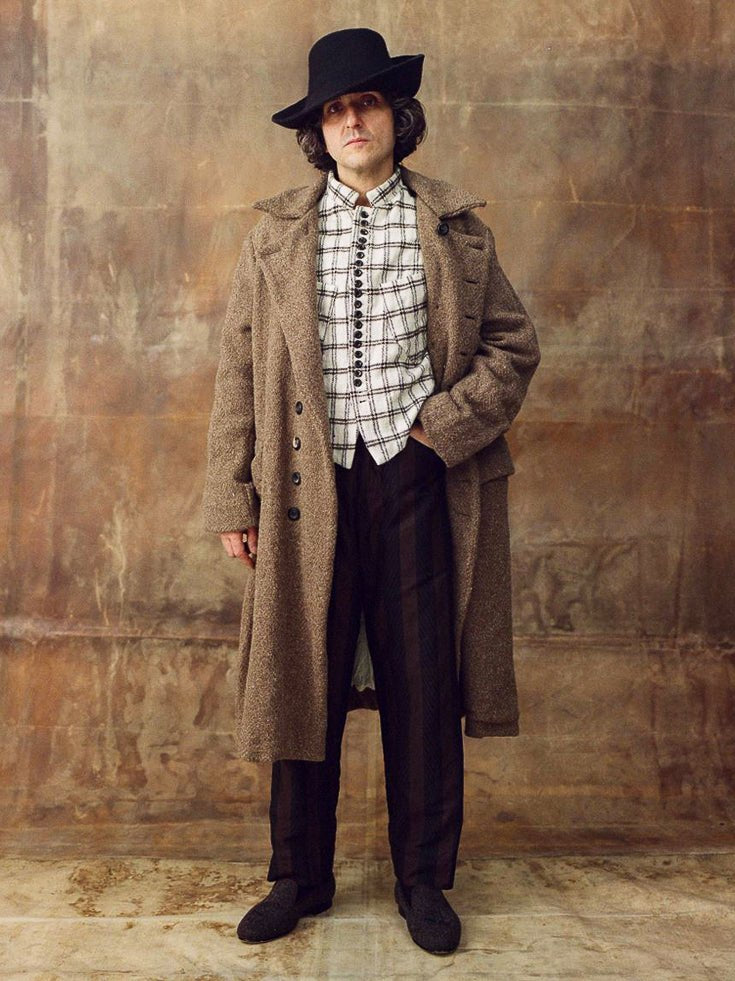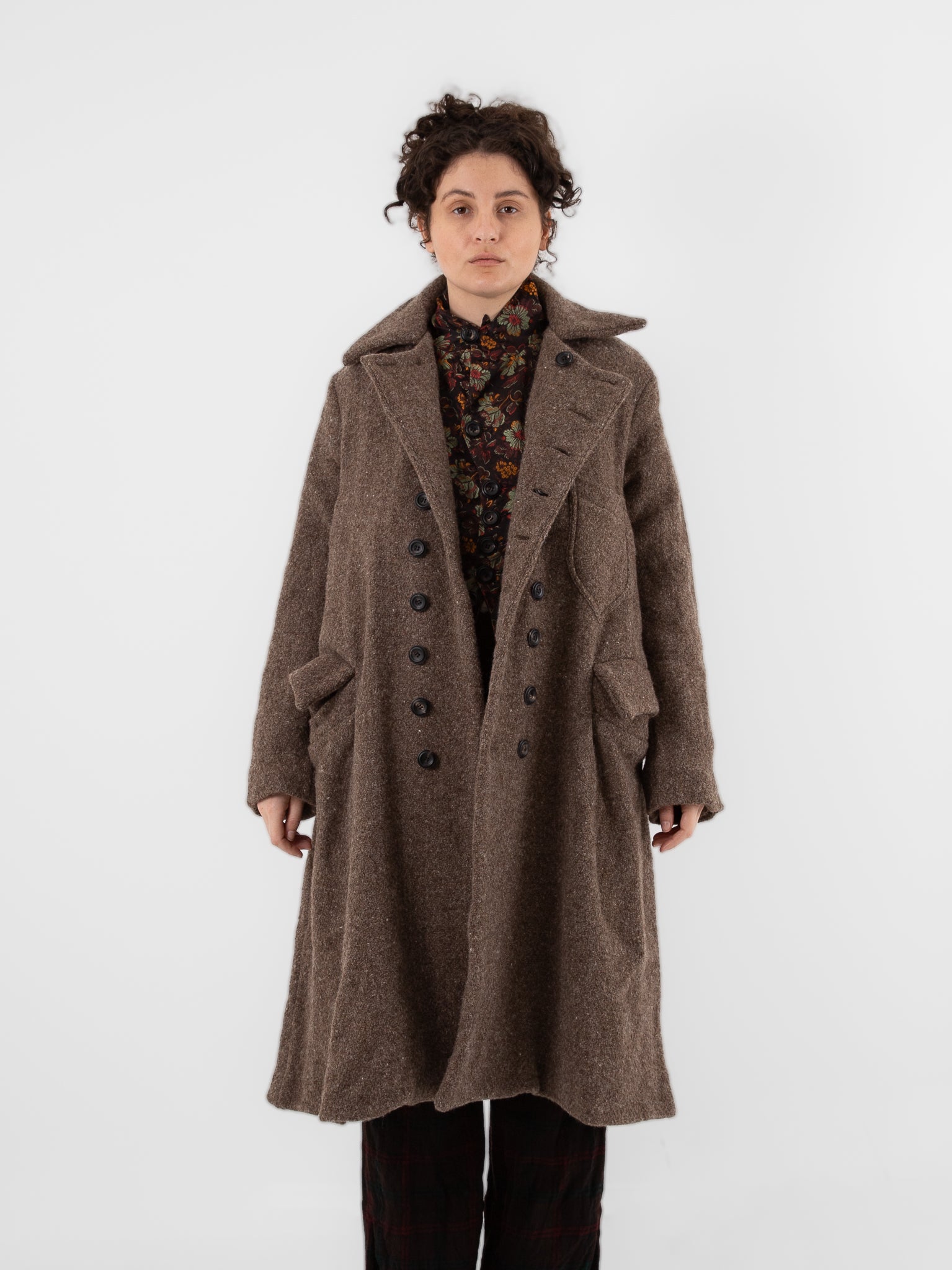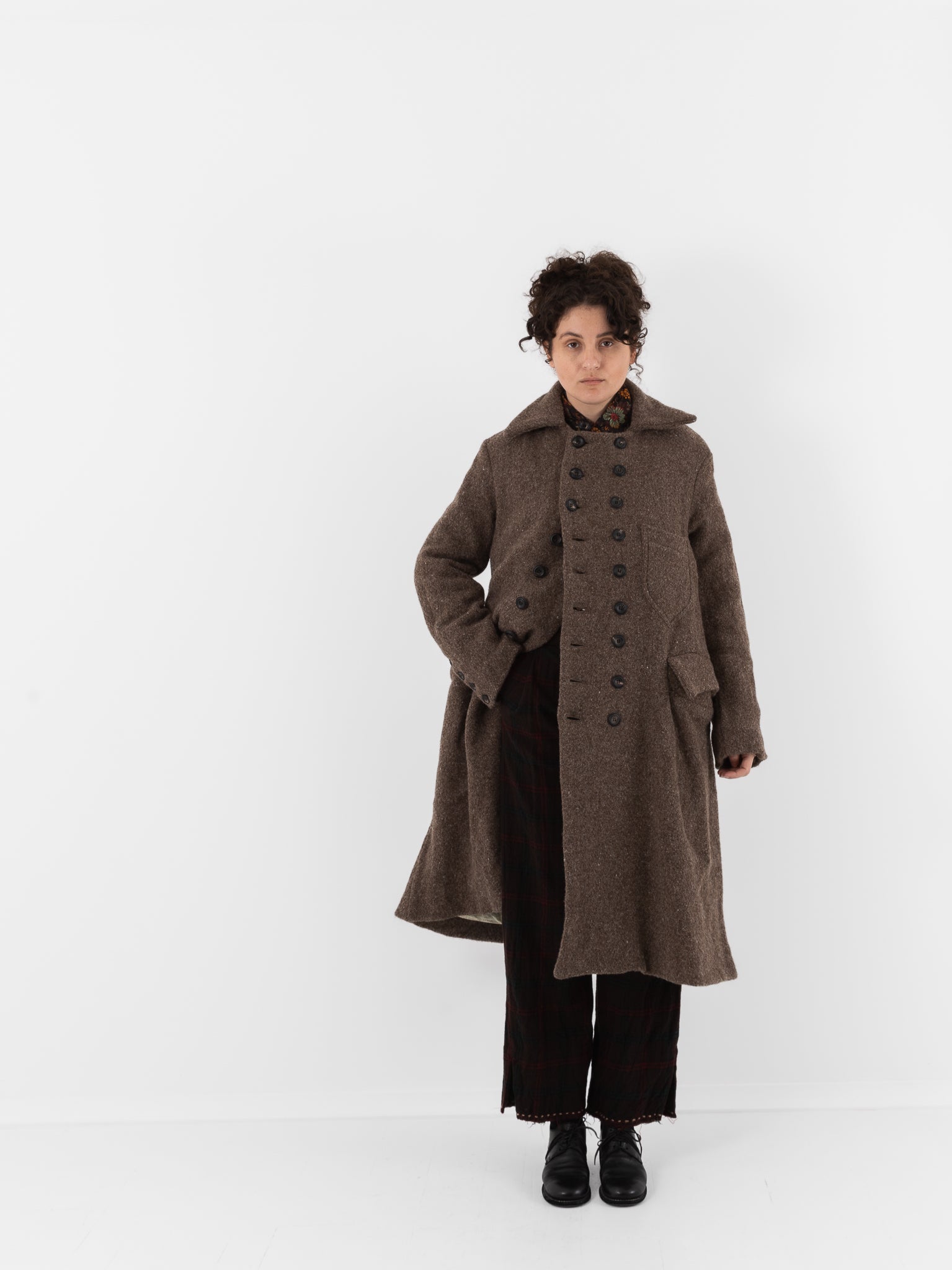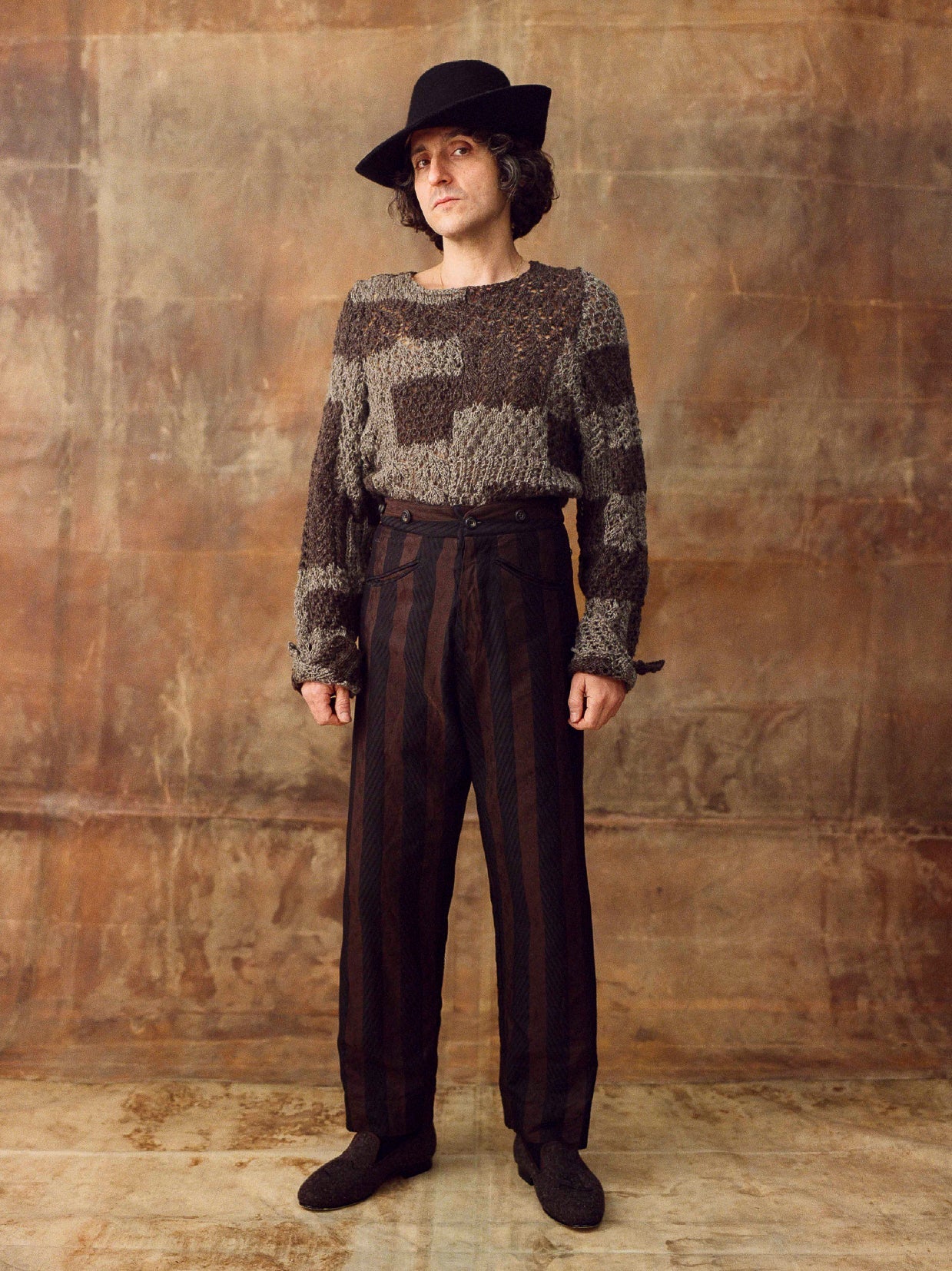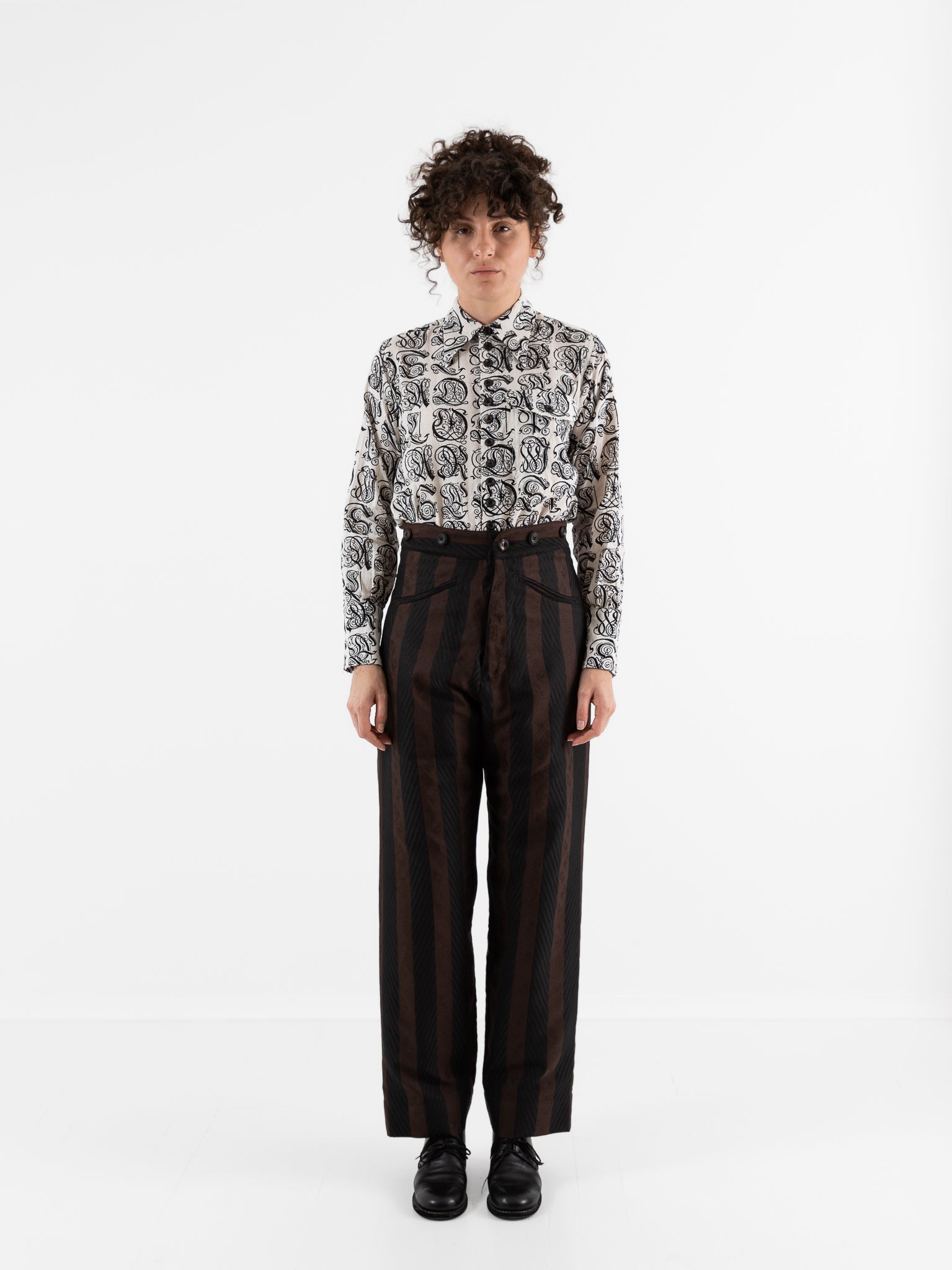John Alexander Skelton
John Alexander Skelton is an artisanal British menswear designer and alumni of the prestigious Fashion Design MA at Central Saint Martins London. His work stems from an extensive interest in the sociopolitical effects on fashion and culture within specific contexts of struggles between class, past and present.
An underlying and paramount facet to John Alexander Skelton’s work is sustainability. He uses repurposed cloth from existing clothing and utilizes recycled fabrics like antique bed sheets and old grain sacks found in markets. Weaving wools from British fleece, knitting yarn from rare breeds of British sheep, and naturally dyed and naturally finished materials are featured in his work as well. He customizes these materials through hand-dying, overwashing, painting, and patching. The result is a garment inspired by his research into the past, traditional craft, heritage, politics, and a step towards an entirely autonomously made collection.
In-store only. Inquire to purchase.
Paradise Lost, not John Milton’s work but a book of painting’s from the Victorian era 1850 - 1914 curated by Christopher Wood depicts country life in England primarily through an idyllic lens. The mode du jour of the painters from this period was to depict the countryside as a haven, a paradise that in actual fact had been partially lost or never really existed. The industrial revolution marked a significant change in the English countryside, there was a huge shift from the village to the town and from the farm to the factory. The countryside and the way it was cultivated, as the painters once knew it, started to change which subsequently affected not only the way it looked but also lead to the loss of wildlife and certain flora and fauna.
The painters and their patrons sought solace from the countryside and the idea of a peaceful and joyous way of life, those who chose to represent the hardships and the struggle faced by living a rural life were mostly dismissed. My personal takeaway was that whilst it is important for to an artist to convey the realities and harshness of life it is just as crucial that they make work that transports us. My work over the last few years has for the most part had a common thread that has involved the natural world in one way or another. I personally seek out the countryside on a regular basis as a way to refresh, energise, heal and a place to think uninterrupted by the stresses and strains of city life.
There is a sense of joy and celebration in the paintings of seemingly ordinary scene’s of daily life be it in the village hall or the interior of a cottage that really resonated. The celebratory aspect of this is perhaps for me the most significant as I feel like it’s something that we as a society have lost or it has been corrupted by it’s commercialisation. The midwinter festivals are a good case in point for this, winter solstice for instance is now regarded in the collective consciousness as being quite esoteric and only celebrated by those on the fringes. The period around the solstice for me has an excitement to it, the natural world is silently gathering it’s forces readying for it’s emergence through the gloom and into a new year.
These thoughts reverberated whilst I created the collection, I wanted to create something that paid reverence to the importance of this pivotal point in the year and to the countryside, the natural world, and to the essentialness of celebration and festivity. From the initial stages of this collection I didn’t want to draw too many reasons for choice of silhouette and fabric but rather let the work of the artists that Christopher Wood has so deftly curated do their job. I sought deliverance to an imaginative idyllic state in which I could create clothing that could also hold the power to hopefully enrapture and ultimately transport.
John Alexander Skelton on Collection XVIII

